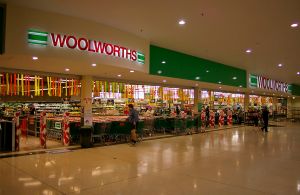Like most people these days I’m afflicted with the necessity of reading a certain amount of the social media guff that infects the internet. (I even contribute to some of it)
Anyone with grown up kids they want to keep a distant eye on has little choice.
I’ve noticed from various directions (but mainly disgruntled females) quite a bit of flak directed at supermarkets here in Australia and even suggestions that patriotic citizens should revert to shopping at the corner store to bring these behemoths to their knees.
As an ex dairy farmer I once protested (in person carrying a placard) at a number of Woolworths supermarkets in Brisbane during the deregulation of the dairy industry. On one occasion I came very close to being arrested. This however was a means to an end (which was not achieved) as most of us knew that the fault lay squarely with the government of the day, which had removed our milk quota system. The supermarkets were blamed and we (the farmers) went along with it to try to achieve a better outcome for ourselves – that wasn’t to be.
The supermarkets (or any retailer for that matter) sell at their costs plus a margin and if the Government is not price fixing (as they did with milk in Queensland prior to deregulation) then they will do the same with milk – they were not to blame for the demise of the Queensland dairy industry, the government of the day and its self interested advisers were.
Anyway here are a few grocery retailing facts as they apply today, so make up your own minds based on some relevant facts:
(note: due to their complexity and number not all of the stores/brands of each company are listed)
Woolworths is a very large publicly listed company and is the biggest employer in Australia.
It is owned to a large extent by Australian shareholders, large and small, through direct ownership of shares or through managed Super Funds.
Coles is owned by Wesfarmers, another large publicly listed company and a very large employer with the same ownership characteristics as Woolworths and also a company that would be found in almost all managed Super Funds.
(Most of us are supermarket part owners)
IGA are independently owned supermarkets under the control (distribution and marketing) of the publicly listed company Metcash which also owns Mitre 10 hardwares and the Australian Automotive Group.
Many of the owners of IGA supermarkets own more than one supermarket (in some cases many supermarkets) and many of these owners are wealthy families.
Aldi is owned by a German Family worth an estimated 17.2 billion euros
Costco is a publicly listed American Company
Lidl may also be coming to Australia. It is owned by a German family with an estimated worth of 11.5 billion euros.
The “corner stores” of course (where you will pay a hell of a lot more for groceries) are owned by a variety of individuals and companies etc, however an example of one chain of corner stores would be 7 Eleven. The 7 eleven franchise system in Australia is owned by an Australian family with an estimated worth of 725 million Australian dollars. They have recently also purchased the remaining Starbucks coffee chain – an extremely wealthy family and good luck to them, but hardly a family in need of a helping hand.
Contrary to much of the garbage emanating from the TV and the papers there is fierce competition in the Australan grocery market and consequently an ongoing price war which keeps prices to the consumer down.
Removal of the power of supermarkets would remove this competition and prices would rise.
I’ve been there, and personally I don’t want to go back to shopping at corner stores – do you?
